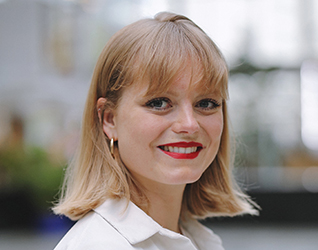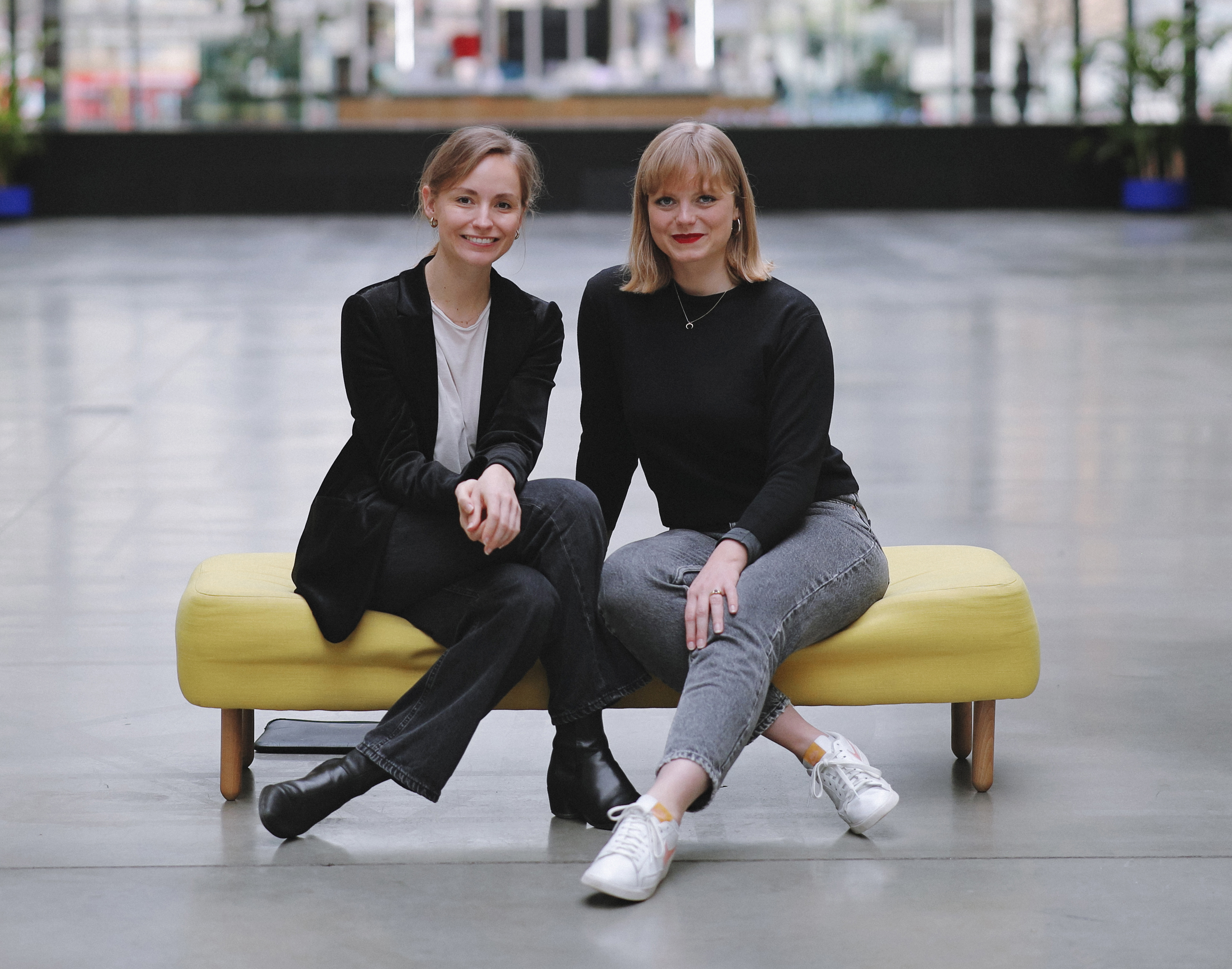You’re a digital nomad — what’s that like?
I’ve been working remotely for a whole year now. Living abroad again has been something I’ve wanted to do for a while, and I wanted to see what it was like to live and work by the sea. So in autumn 2021 I rented a house in Portugal with a group of other self-employed people for two months. It was difficult to find aninterim tenant for my apartment in Munich for such a short period of time, so I extended the sublet and kept on extending my stay abroad — and before I knew it, I’d spent nine months living in Portugal, Spain, Italy, France and the UK. In May 2022 I decided to give up my flat in Munich and enjoy the freedom of the digital nomad lifestyle for an even longer period of time, without anything holding me back. My business is 100% digital, so I can work productively from anywhere, and there are so many beautiful places that I’d love to explore. As a remote worker, you get to know the culture, way of life and world of work in your temporary home much better than you would as a tourist. I already know that I won’t keep up with this lifestyle forever, but for I enjoy the privilege until I find a new place I want to call home.
Is adopting a digital nomad lifestyle a work-related decision for you, or are you just taking advantage of the opportunities that technology provides?
Businettes is still primarily focused on the German market, but we’ve already started doing business in France and we want to expand into other European countries too. So it’s good for us to get to know all these different cultures and build up local networks.
Our team has been remote from day one, and my job allows me to enjoy this level of flexibility. Victoria Arnhold, my co-founder, lives in Paris, and I was living in Munich when we started working together – and then Covid hit anyway. Right from the start, we used all the online tools such as MS Teams, Trello, Notion, Zoom and so on and we collaborate very well even though we’re not in the same country. We’ve onboarded interns and freelancers virtually with ease, only meeting them in person months after they’ve started working with us.
I can imagine that it’s more of a problem if you need to transition a team that’s used to collaborate face to face in the same office to a fully digital way of working — like most companies had to do during the pandemic. But the same is true the other way around, too: For my team, it would be a huge change if we suddenly found ourselves all working together in one office. That’s still an option we’re keeping open for the future, though.
Let’s talk about your project: What exactly do you offer at Businettes and what’s your business model?
Businettes started out as an online incubator for female founders. Women who have a business idea in mind can register on our platform and then gradually concretize and build their idea into a consistent business case. At the end of the program, they’ll know what to do next: whether that means shelving the project, modifying it and taking it forward, or going ahead and launching it! When they’ve completed our program, the founders have their first prototype, an initial concept for a market launch, a pitch deck and a network of fellow female founders at their disposal. We also have a personal development module, which is designed to give female entrepreneurs the self-confidence they need in their new role. The module covers topics such as stress management techniques and questions like “how do I get rid of imposter syndrome?”, “how do I introduce myself?” and “how should I speak to partners?” We want to empower female founders — because we believe this is critical to closing the female founder gap in the startup ecosystem across Europe.
How does the Businettes program work?
Our customers work on their business ideas themselves. We’ve created an automated program based on business ideation tools, psychological methods and gamification. You go through different chapters that build on each other. You only advance to the next level if you have achieved all the exercises of a level. Our online platform is available day and night, so our founders can complete the program whenever they want, to suit their schedule or time zone. This was really important to us because many of women become founders while being moms or working in full-time job positions. We have seen some people deciding to become full-time founders straight away, but the majority starts in smaller steps. In fact, 50% of all newly founded businesses in Germany are are side-businesses at the beginning.
The women we work with have very unique backgrounds and different levels of business knowledge and experience. But our program can be completed by everyone, even without any prior business knowledge. It’s designed to teach our customers everything they need to know about the world of startups and investment and to use business jargon confidently — which then of course makes them more self-confident in general regarding their business idea and their new role of an entrepreneur.
Do you see any particular thematic preferences among the start-ups, given that the program is targeted specifically at women?
In fact, among female founders we see many products or services for women, that is, by women for women, or also for families or children. Some also go into the HR or marketing sectors, which are traditionally more female-dominant. And we also have quite a few founders in the fields of nutrition, fashion, medical engineering and mental health. We see tech solutions in the sense that most of the business ideas are delivered via apps, marketplaces or platforms who need to be coded. But real deep tech start-ups are rather rare. We hope to see this change in the medium term, and the signs are good as the number of women opting to study STEM subjects is already on the rise. To create a gateway for female founders to enter the deep-tech market, we’ve partnered with tech companies like Infineon and Bosch, who can share their industry knowledge and networks with women who want to set up a business in this field.
Speaking of partnerships, how do you finance your company?
We have several business models: On the B2C side, we charge female founders to use our online platform. As it’s an automated solution, it’s more affordable for a founder to come to us for support than to work in a 1:1 format with a coach, for example. From the start, we wanted to keep our costs affordable for new founders. After all, we’ve seen for ourselves how important it is to think very carefully about where you invest your money — especially if you’ve quit your job to focus on your startup full time. Next to the fully automated basic version we also have Businettes Premium where we offer 1:1 sparring calls on top of the program - which is especially relevant for solo-founders.
We also work with companies that share our beliefs around female empowerment and are keen to demonstrate their commitment to diversifying our economic landscape. For example, in addition to the tech companies already mentioned, we also have a cooperation with a health insurance company, because especially in Germany insurance is a big issue for entrepreneurs, or with one of the largest social business networks, LinkedIn.
In France, our business model is totally different: We’re certified as part of the French continuing professional development program (CPF), so our customers can complete our course free of charge - the costs are covered the French government and the customer’s previous employers.
How important are networks?
INCREDIBLY IMPORTANT! Having a network is essential for anyone who wants to found a company, and ideally you should surround yourself with people in the same phase of life as you. If you’re surrounded by people who are employed by a company for example they’re more likely the ones who will discuss the risks and uncertainty of your decisions. It is so important to embark on your journey with the right mindset and to understand that worries and fears aren’t an obstacle; they’re completely normal.
That’s exactly why we started the Businettes Community. We now have more than 500 members, all of whom are already female founders or women who are about to start a company. The community is a place where women can discuss their questions, challenges and successes, with the shared belief that we’re #strongertogether.


